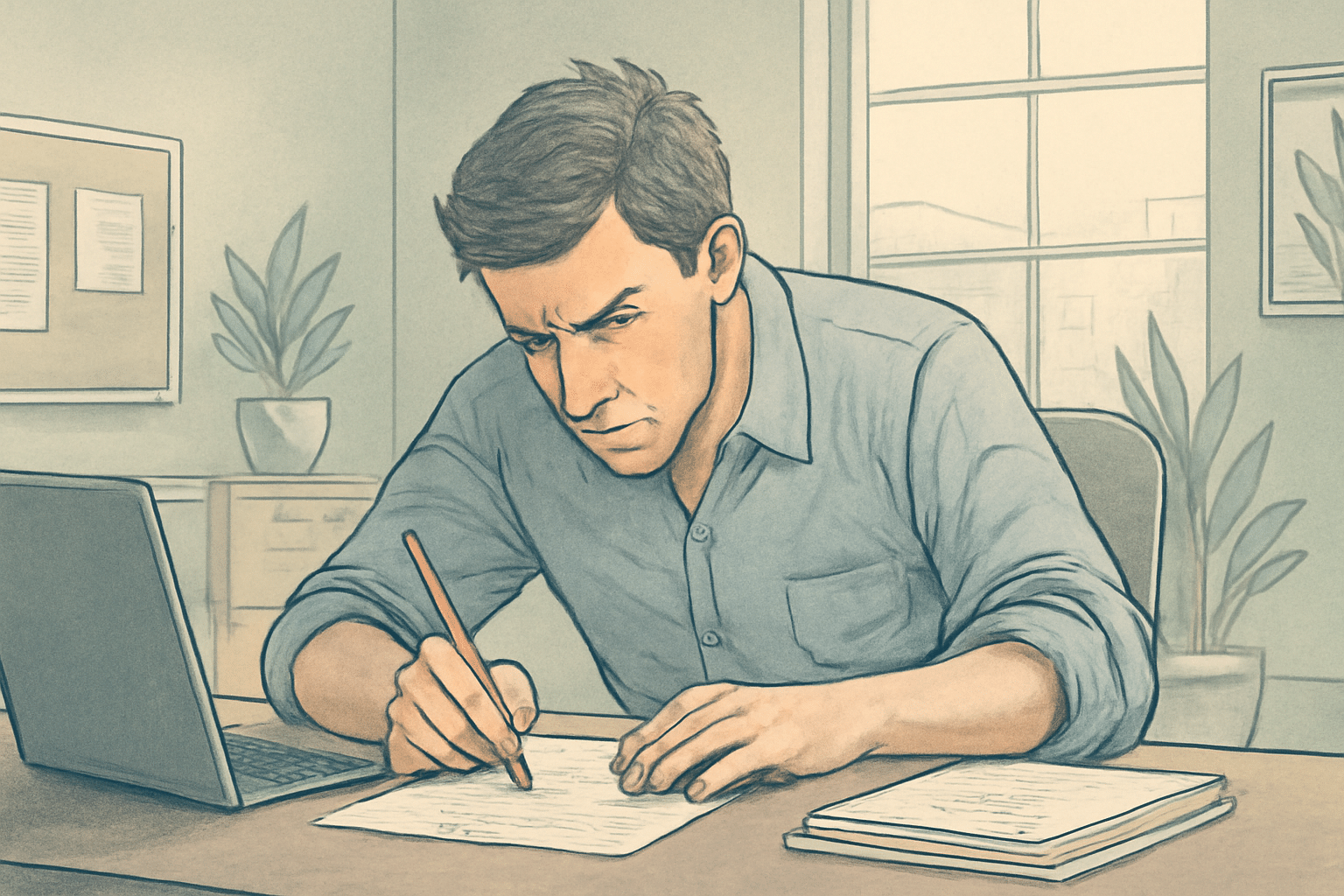Key Takeaways
- High functioning anxiety manifests through perfectionism, overthinking, and persistent busyness while maintaining outward success.
- Sleep disturbances like racing thoughts at bedtime and early morning waking are common physical manifestations of high functioning anxiety.
- People-pleasing behaviors and difficulty setting boundaries often stem from anxiety about rejection or disapproval
- High functioning anxiety requires professional intervention despite the appearance of “having it all together.”
- At A Mission For Michael, our comprehensive treatment approach combines therapy, lifestyle modifications, and sometimes medication to address the underlying symptoms of anxiety and improve quality of life.
What is High Functioning Anxiety?
High functioning anxiety describes a condition where someone experiences significant anxiety symptoms while maintaining their daily responsibilities and outward success. Unlike some anxiety disorders that might cause obvious impairment, people with high functioning anxiety continue meeting or exceeding expectations at work, in relationships, and in social settings. This persistence masks the internal struggle and often prevents proper diagnosis and treatment.
How It Differs From GAD
Generalized Anxiety Disorder (GAD) and high functioning anxiety share many symptoms, but their impact on daily life can differ significantly. With GAD, anxiety symptoms often clearly interfere with a person’s ability to function normally. Tasks might be left incomplete, social engagements avoided, or work performance affected. The distress is typically more visible to others.
High functioning anxiety, by contrast, might actually drive increased productivity and achievement in the short term. The persistent worry becomes a motivating force that pushes the person to excel, often at significant personal cost. This creates a reinforcing cycle where anxiety symptoms are rewarded by external success, making the condition particularly difficult to identify and address.
Founded in 2010, A Mission For Michael (AMFM) offers specialized mental health care across California, Minnesota, and Virginia. Our accredited facilities provide residential and outpatient programs, utilizing evidence-based therapies such as CBT, DBT, and EMDR.
Our dedicated team of licensed professionals ensures every client receives the best care possible, supported by accreditation from The Joint Commission. We are committed to safety and personalized treatment plans.
7 Signs of High Functioning Anxiety: Overthinking, Insomnia & More
1. Overthinking Everything

One of the most common and debilitating signs of high functioning anxiety is persistent overthinking.
Mental Loops
Mental loops represent the repetitive thought patterns that characterize high functioning anxiety. Rather than processing information and moving forward, the mind gets stuck replaying conversations, analyzing potential outcomes, or reviewing past decisions for flaws. These thought loops consume enormous mental energy while creating the illusion of productivity or preparation.
Decision Paralysis
Decision paralysis is a common manifestation of overthinking in high functioning anxiety. When faced with choices, individuals become overwhelmed by considering every possible outcome and consequence, often catastrophizing potential negative results. This can make even simple decisions like choosing a restaurant or scheduling a meeting feel overwhelmingly difficult.
2. Sleep Problems
Middle-of-Night Waking
People with high functioning anxiety frequently experience disrupted sleep patterns. They may find it hard to sleep, and when they do, they often wake multiple times throughout the night, with their mind immediately activating into worry or planning mode. This prevents achieving the deeper, restorative sleep stages necessary for physical and mental recovery.
Early Morning Anxiety
Many with high functioning anxiety report waking significantly earlier than intended with immediate activation of anxious thoughts. This often includes mentally reviewing the day’s agenda, worrying about pending responsibilities, or feeling a sense of dread about facing another demanding day. Unlike those who wake early feeling refreshed, this early rising comes with immediate tension and mental activation.
3. Perfectionism Trap
Impossible Standards
People with high functioning anxiety typically establish standards for themselves that far exceed what they would expect from others. These standards often extend beyond realistic human capacity, creating a situation where the person is essentially set up to feel perpetually inadequate despite significant achievements. The gap between these impossible expectations and reality becomes a constant source of distress.
Fear of Failure
Behind the perfectionism of high functioning anxiety lies an intense fear of failure beyond normal concern about setbacks. For many with this condition, even minor mistakes feel catastrophic and are interpreted as evidence of fundamental inadequacy. This fear creates a constant state of vigilance against potential errors, draining mental energy and creating significant stress.
4. People-Pleasing Behaviors

People-pleasing represents another common manifestation of high functioning anxiety.
Overcommitment Cycle
People with high functioning anxiety often find it hard to say no and often have calendars packed beyond reasonable capacity, having agreed to various responsibilities without adequate consideration of their own limitations or needs. This overextension creates a perpetual state of rushing between obligations with little time for rest or rejuvenation.
Seeking Validation
Beneath many people-pleasing behaviors lies an intense need for external validation. When self-worth becomes contingent on others’ approval, each interaction carries the weight of potential judgment. This creates hypervigilance about others’ reactions and a constant effort to adjust behavior to maximize positive feedback. This validation-seeking often manifests as frequent apologizing, excessive gratitude for basic consideration, or persistent checking that others aren’t upset.
5. Physical Symptoms
Tension and Headaches
Chronic muscle tension represents one of the most common physical manifestations of high functioning anxiety. This tension often concentrates in the shoulders, neck, and jaw, creating a persistent state of physical constriction that can lead to headaches, soreness, and even temporomandibular joint (TMJ) issues. Many people become so accustomed to this tension that they no longer recognize it as abnormal until it’s relieved.
Digestive Issues
The gut-brain connection means anxiety frequently manifests through digestive symptoms. People with high functioning anxiety commonly experience issues like irritable bowel syndrome (IBS), acid reflux, stomach pain, or irregular appetite patterns. These symptoms often follow predictable patterns related to stress but may be misattributed to food sensitivities or other digestive conditions.
Fatigue Despite Activity
One particularly confusing symptom of high functioning anxiety is persistent fatigue despite adequate sleep and good physical health. This fatigue stems from the enormous energy expenditure required to maintain constant vigilance, manage racing thoughts, and suppress anxiety symptoms while meeting daily responsibilities. The mind and body essentially work overtime even during seemingly routine activities.
6. Constant Busyness
Avoiding Downtime
People with high functioning anxiety often experience intense discomfort during unstructured time. Quiet moments allow suppressed worries and feelings to surface, creating an overwhelming flood of thoughts that feels unbearable. This leads to active avoidance of downtime through constant activity, planning, or distraction.
Productivity as Escape
For many with high functioning anxiety, productivity becomes more than a way to accomplish goals; it transforms into an emotional regulation strategy. Achievement provides temporary relief from anxiety through distraction, a sense of control, and external validation. This creates a dependency on constant productivity for emotional stability rather than as a balanced part of a fulfilling life.
7. Need for Control

An intense need for control underlies many manifestations of high functioning anxiety.
Excessive Planning
People with high functioning anxiety often engage in planning that goes far beyond practical preparation. This might include creating detailed scenarios for events weeks in advance, developing elaborate contingency plans for unlikely problems, or mentally rehearsing conversations and interactions repeatedly. While some planning is obviously beneficial, this level of detail reflects an attempt to eliminate all uncertainty rather than reasonable preparation.
Struggle with Uncertainty
Intolerance of uncertainty represents a core feature of anxiety disorders, particularly evident in high functioning anxiety. This manifests as intense discomfort when faced with situations lacking clear outcomes or parameters. The anxious mind interprets uncertainty itself as threatening rather than as a natural part of human experience, creating distress even in objectively safe situations that contain unknown elements.
Breaking Free
Recognizing Your Patterns
The first step toward healing high functioning anxiety involves honestly assessing how anxiety manifests in your life. This requires looking beyond achievements to examine motivations, physical symptoms, thought patterns, and emotional experiences. This recognition process often involves distinguishing between anxiety-driven behaviors and authentic preferences or values.
Professional Support Options
Professional support plays a major role in addressing high functioning anxiety effectively. While self-help strategies provide value, working with experienced mental health professionals offers guidance customized to your specific needs and circumstances.
Cognitive Behavioral Therapy (CBT) has demonstrated particular effectiveness for anxiety conditions. This approach helps identify and modify thought patterns that fuel anxiety while developing new behavioral responses to challenging situations.
Daily Coping Strategies
While professional treatment provides essential structure and guidance for recovery, daily practices build the foundation for lasting change. Develop personalized coping strategies that interrupt anxiety cycles and build resilience.
These might include mindfulness techniques, scheduled worry time, progressive muscle relaxation, journaling, or strategic breaks throughout the day. The most effective approaches combine immediate anxiety-reduction techniques with practices that address underlying thought patterns and beliefs.
Recover from High Functioning Anxiety with AMFM
At A Mission For Michael, our specialized treatment approach honors your achievements while addressing the anxiety that may be driving them. Through evidence-based therapies like CBT, mindfulness training, and personalized coping strategies, we help high-achieving individuals break free from anxiety-driven patterns without sacrificing their ambitions.
Our comprehensive programs across California, Virginia, and Washington provide both individual and group therapy options, allowing you to connect with others who understand your experience.

We know that sustainable success comes from a foundation of genuine well-being; that’s why we provide a conducive environment that aids recovery.
Recovery doesn’t mean lowering your standards; it means pursuing your goals with clarity, confidence, and authentic motivation rather than anxiety-driven compulsion.
Take the first step toward reclaiming your peace of mind while maintaining your success. Contact AMFM today for a confidential assessment and learn how treating your high functioning anxiety can enhance rather than compromise your achievements.
Frequently Asked Questions
Can high functioning anxiety go away on its own?
High functioning anxiety rarely resolves completely without intervention. Because this form of anxiety often comes with external rewards (recognition for achievement, praise for reliability), the motivation to address underlying distress may be limited. While symptoms may fluctuate in intensity, sustainable improvement typically requires deliberate effort to change thought patterns, behaviors, and lifestyle factors that maintain the anxiety cycle.
Is high functioning anxiety an official diagnosis?
High functioning anxiety is not an official diagnosis in the Diagnostic and Statistical Manual of Mental Disorders (DSM-5). Instead, it describes a pattern of functioning that may occur with various anxiety disorders, including generalized anxiety disorder, social anxiety disorder, or specific phobias. The “high functioning” descriptor refers to the person’s ability to maintain external responsibilities despite significant internal distress.
How does high functioning anxiety affect relationships?
High functioning anxiety can significantly impact relationships in various ways. The perfectionism and control needs often extend to relationship expectations, creating pressure for partners. People-pleasing behaviors may prevent authentic expression of needs or boundaries, leading to resentment over time. Despite these challenges, relationships can thrive when anxiety is acknowledged and addressed openly, with many couples finding that recovery work actually strengthens their connection through improved communication and authenticity.
Can medication help with high functioning anxiety?
Medication can be helpful for many people with high functioning anxiety, particularly when symptoms significantly impact quality of life despite other interventions. Commonly prescribed medications include selective serotonin reuptake inhibitors (SSRIs), which can reduce anxiety intensity while you work on psychological and lifestyle changes. Medication decisions should always involve a thorough discussion of potential benefits and risks with a qualified medical provider who understands your specific circumstances and goals.
Can I maintain my high performance while treating anxiety?
Absolutely. At AMFM, we understand that many of our clients fear that addressing their anxiety will compromise their achievements or drive. Our goal isn’t to eliminate ambition but to help you pursue success from a foundation of well-being rather than fear. Many clients find out that treating their anxiety actually enhances their performance by reducing the mental energy consumed by worry, improving decision-making, and increasing sustainable productivity. Recovery means finding more effective and fulfilling paths to your goals rather than sacrificing them.












